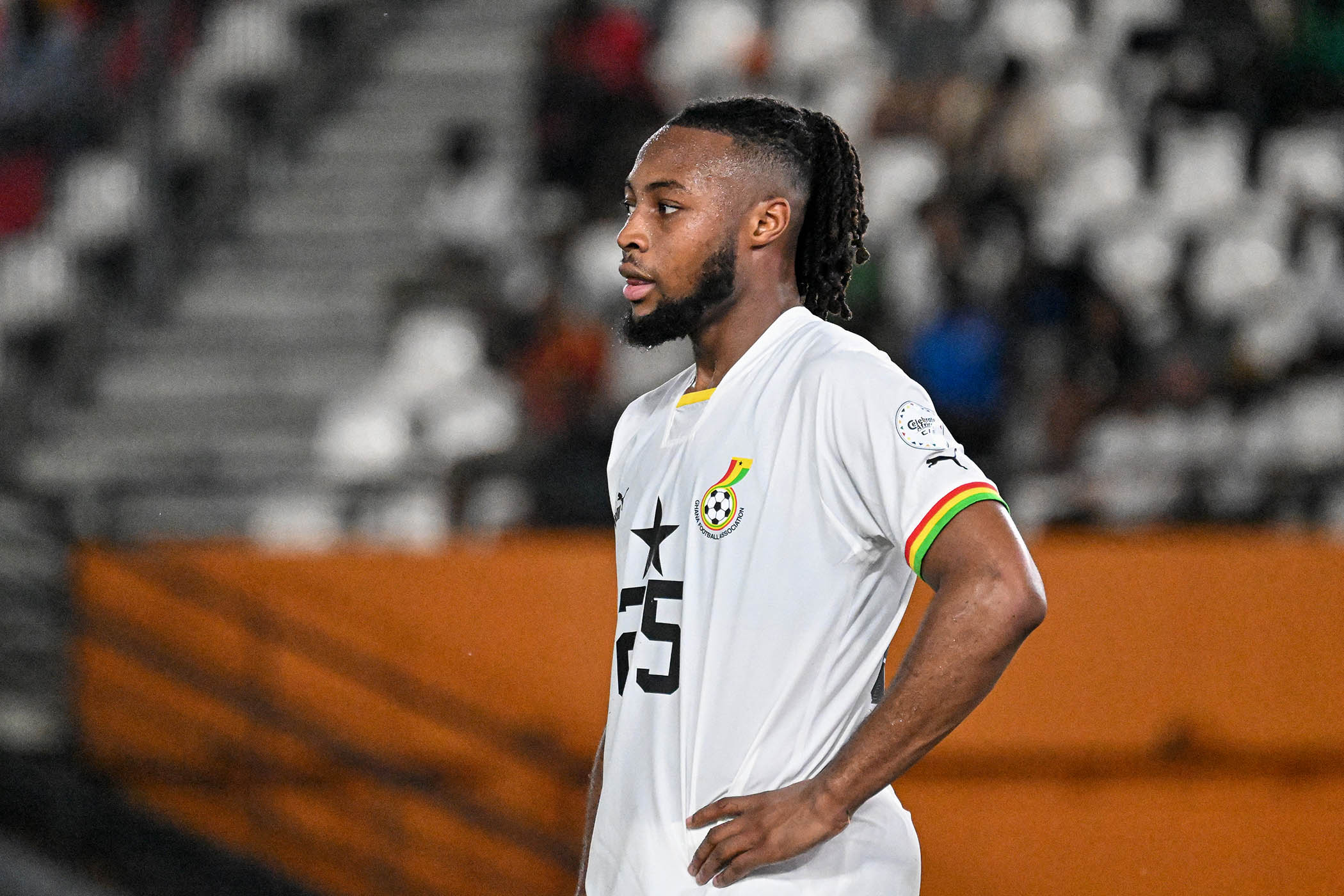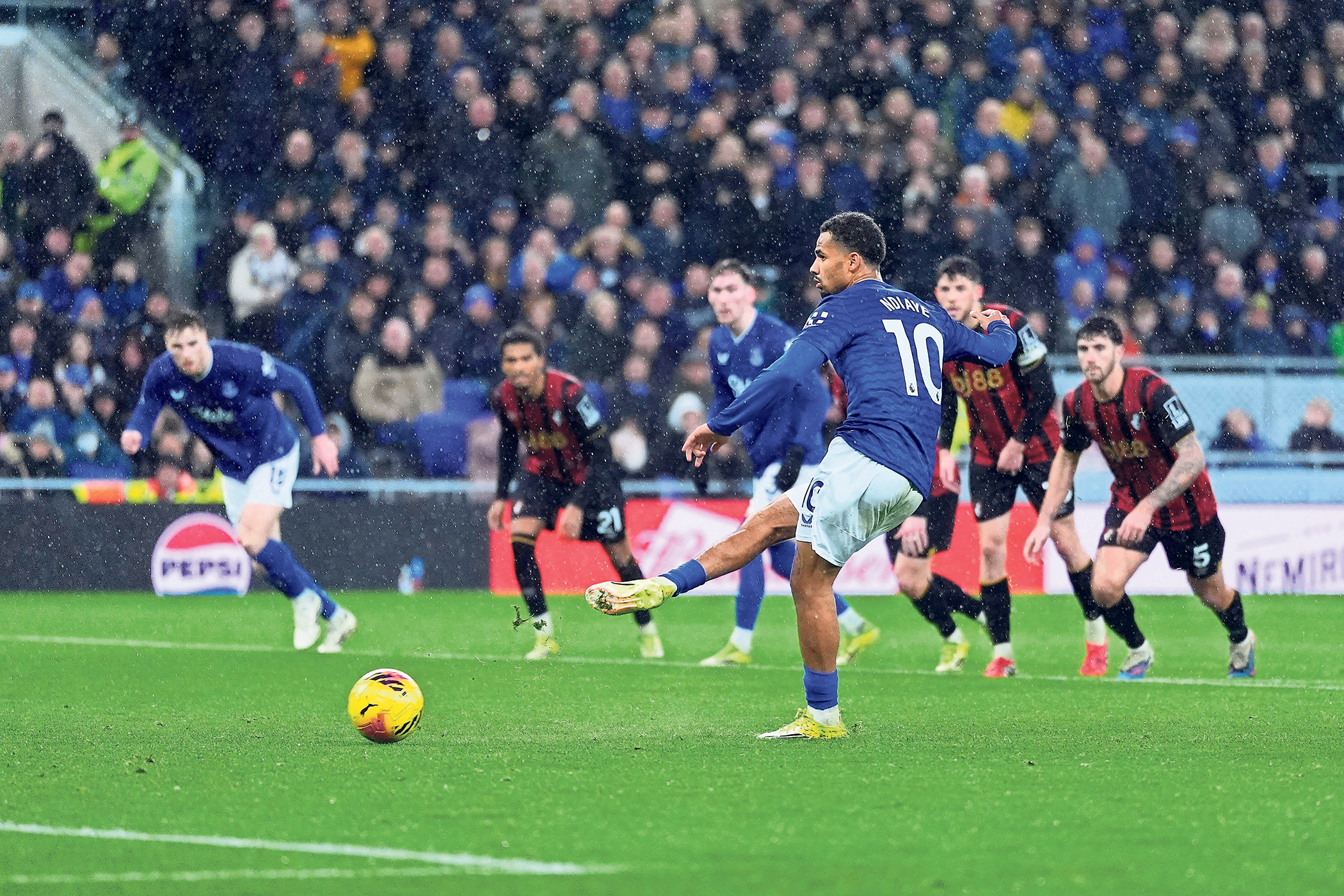The moment Aaron Wan-Bissaka’s parents opened the door, Gabriel Zakuani sensed all his hard work might yet pay off. He had spent months gently encouraging their son, the West Ham defender, to consider switching his international allegiance from England, the land of his birth, to the Democratic Republic of Congo, that of his heritage.
It had been so delicate a process that at times some of his colleagues at the Congolese Association Football Federation had started to lose hope. But Zakuani knew from personal experience that it was not a decision that could be made lightly. He was not just asking Wan-Bissaka to choose which country to represent. He was asking him to choose between two sides of himself.
Zakuani’s hope had been that Wan-Bissaka’s parents might tilt the balance in his favour. He arrived at their home ready to “pull on the heartstrings a little bit”, to emphasise what it would mean to them to see their son represent their homeland. As he stepped inside, he realised he would not have to pull especially hard. “The way they were dressed, the music they had on: it was quite a traditional Congolese home,” he said.
Wan-Bissaka, who switched his footballing nationality in August before making his competitive senior debut for DR Congo in a World Cup qualifier last month, is not the only player born or raised in Britain to have found themselves in that position in recent years. There are dozens of players involved in World Cup qualifying this week who have faced the same decision.
An incomplete list would include two of Wan-Bissaka’s Congolese team-mates (Axel Tuanzebe and Grady Diangana), a substantial proportion of the Nigeria side still in contention to qualify (Semi Ajayi, Calvin Bassey, Alex Iwobi and Ademola Lookman among them) and two of Ghana’s attacking trident: Coventry’s Brandon Thomas-Asante and Bournemouth’s Antoine Semenyo.
The effect is not only felt in Africa. Chile’s goalkeeper, Lawrence Vigouroux, was born in Camden. Nathaniel Méndez-Laing grew up in Birmingham and played for England’s youth teams, but now represents Guatemala. The United States have three players who spent at least a portion of their childhoods in England; Canada could name two. More than half of Jamaica’s current squad was born in England. (So was their manager, Steve McClaren, although that’s not quite the same thing.) Denmark, Poland and Albania all have players who might have qualified for Thomas Tuchel’s national side.
If the phenomenon itself is not entirely new – Simone Perrotta, beloved son of Ashton-under-Lyne, won the World Cup with Italy in 2006 – then the scale of it certainly is. England have always produced the occasional player who goes on to represent other national sides; it has never done so in this volume.
In part, that can be attributed to the country’s changing social demographics; there are more players eligible for other nations through their parents or grandparents. But it is also testament to the production line of England’s academies, the sense that the country – and London in particular – stands as one of the world’s foremost forges of talent.
Zakuani’s role is, in many ways, the best illustration of that. His own international career ended with him captaining his country, but it started almost by chance: Lomana LuaLua, the Congolese former Newcastle striker, learned that Zakuani had been born in DR Congo and suggested that he might consider it. “He persuaded me,” Zakuani said. “I saw that they needed a lot of help at that stage, so I chose to go.”
For many years, plenty of countries had a similarly laissez-faire approach to making the most of their diaspora populations: Chile, for example, famously discovered the forward Ben Brereton Díaz’s ancestry thanks to the video game Football Manager. Such is the weight of talent emerging in England, though, that several countries are now taking a much more formal approach. “England can only choose so many players,” said Tim Aleshe, the scout responsible for identifying European-born or raised players who are eligible for Nigeria. “What about the rest?”
Newsletters
Choose the newsletters you want to receive
View more
For information about how The Observer protects your data, read our Privacy Policy
Zakuani plays the same role for DR Congo: first finding and then convincing prospective additions to commit to play for a country that might not be especially familiar. The first phase is time-consuming. Zakuani has found players through social media and through word of mouth, but he has frequently had to lean on a gift for recognising Congolese surnames.
“I’ve got quite good at it,” he said. “I’ll watch a random game and look at the squads, and then do some digging. I remember covering a Luton game at Peterborough for the BBC. There was a player called Peter Kioso. The programme said he was Irish. I tried to find out where his parents were from; I ended up calling the club.” Last year, Kioso made his first appearance for DR Congo.
Aleshe has a network who advise him if a player of Nigerian heritage is coming through, but often he has to resort to educated guesswork, too. “It is much easier if they have a Nigerian father,” he said. “That way at least the surname gives you a clue.”
The second phase is acutely sensitive. Representing a national team, Aleshe believes, is such an intimate, personal thing that it “has to come from the heart”. He does not speak to players unless he has been told that they would be open to the idea.
“It’s such a big decision,” Zakuani said. “It’s about who they are. You have to let them take their time. I think of it as going to war: you have to choose who you are going to go to war for, and for a lot of them, all they have ever known is England. You have to show them the other side, what it would mean to represent their parents, their heritage.”
Some, of course, want to represent the place where they have spent most of their lives. Eberechi Eze attended a Nigerian training camp while he was still with QPR; Ivory Coast offered Marc Guéhi the chance to switch his allegiance several years ago. Both are now in Thomas Tuchel’s England squad, alongside Ezri Konsa and Bukayo Saka, players of Congolese and Nigerian descent.
Still, Zakuani takes great pride in the players he has found; he has, he believes, not only strengthened the national side, but helped them to connect with their roots. As well as Wan-Bissaka, he has helped steer Yannick Bolasie, Youssouf Mulumbu, Tuanzebe and Diangana into Congolese colours; the presence of Tuanzebe and Diangana has helped to bring the country to within touching distance of their first World Cup since 1974. Qualification would be a triumph greeted with euphoria in Kinshasa and Lubumbashi; it would, though, be a success whose roots extend all the way to London.
Photograph by Sia Kambou/AFP via Getty Images



